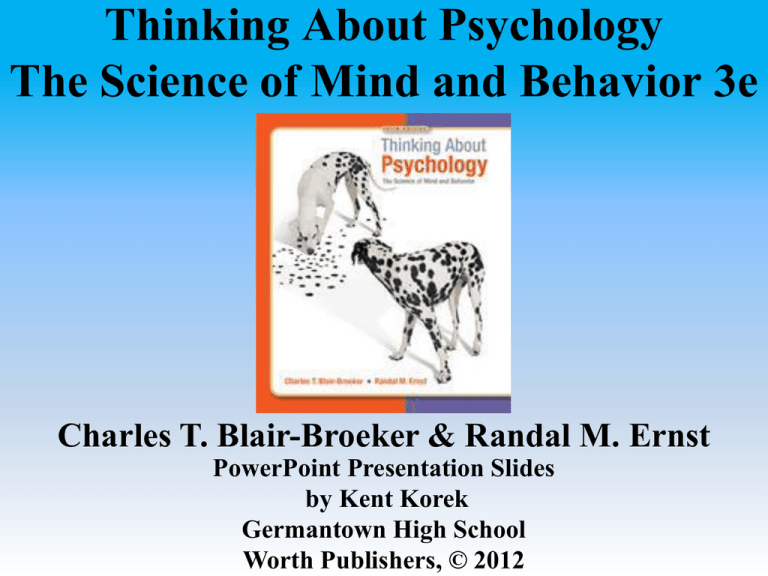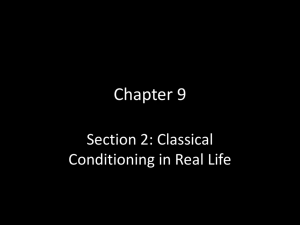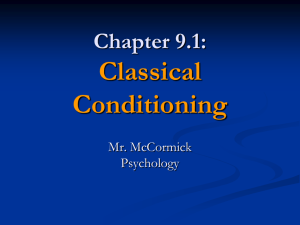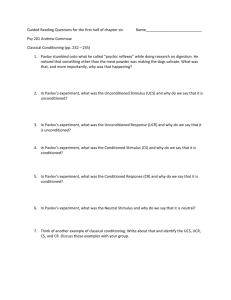Conditioning-AP-2016
advertisement

Thinking About Psychology The Science of Mind and Behavior 3e Charles T. Blair-Broeker & Randal M. Ernst PowerPoint Presentation Slides by Kent Korek Germantown High School Worth Publishers, © 2012 Development and Learning Domain Learning • A relatively permanent change in behavior caused by experience. • Experience • Practice • Adapt • Associate • Sequence Module 14 Classical Conditioning A strategy for remembering… Unconditioned = Natural Conditional = Learned Classical Conditioning • A type of learning in which a stimulus gains the power to cause a response. • The stimulus predicts another stimulus that already produces that response • Form of learning by association Stimulus-Response • Stimulus - anything in the environment that one can respond to. • Response – any behavior or action. Stimulus-Response Relationship Stimulus-Response Relationship Ivan Pavlov (1849-1936) • Russian physiologist and learning theorist famous for discovery of classical conditioning, in which learning occurs through association. Pavlov’s Research Apparatus Pavlov’s Experiment Acquisition • The process of developing a learned response. • The subject learns a new response (CR) to a previously neutral stimulus (CS) Generalization • Producing the same response to two similar stimuli. • The more similar the substitute stimulus is to the original used in conditioning, the stronger the generalized response Extinction • In classical conditioning, the diminishing of a learned response after repeated presentation of the conditioned stimulus alone. • In classical conditioning, the continual presentation of the CS without the UCS Discrimination • The ability to distinguish between two signals or stimuli and produce different responses. • The subject learns that one stimuli predicts the UCS and the other does not. John Watson • Founder of behaviorism, • the theory that psychology should restrict its efforts to studying observable behaviors, • not mental processes Little Albert • 11-month-old infant • Watson and Rosalie Rayner, conditioned Albert to be frightened of white rats..PHOBIA? • Led to questions about experimental ethics Little Albert – Before Conditioning Little Albert – During Conditioning Little Albert – After Conditioning Little Albert - Generalization Can you reverse conditioned fear? Mary Cover Jones Systematic Desensitization What happened to little Albert? Little Albert was really Douglas Merritte Child of Arvilla Irons Died of brain disorder (Hydrocephalus) when he was six-years old For more information: http://www.youtube.com/watch?v=MIc9ijXuk ho Module 14: Classical Conditioning Cognition and Biological Predispositions Cognition • All mental processes associated with thinking, knowing, and remembering. • What effect does cognition have on learning? Robert Rescorla (1940- ) • a theory that emphasized the importance of cognitive processes in classical conditioning. • Pointed out that subjects had to determine (think) whether the CS was a reliable predictor of the UCS Martin Seligman Learned Helplessness? The inability to learn new responses Taste Aversion • Subjects become classically conditioned to avoid specific tastes, because the tastes are associated with nausea. • John Garcia (1917- ) • Limitations of classical conditioning?





